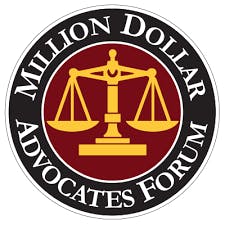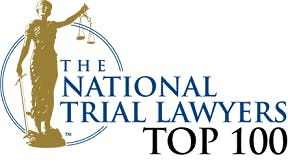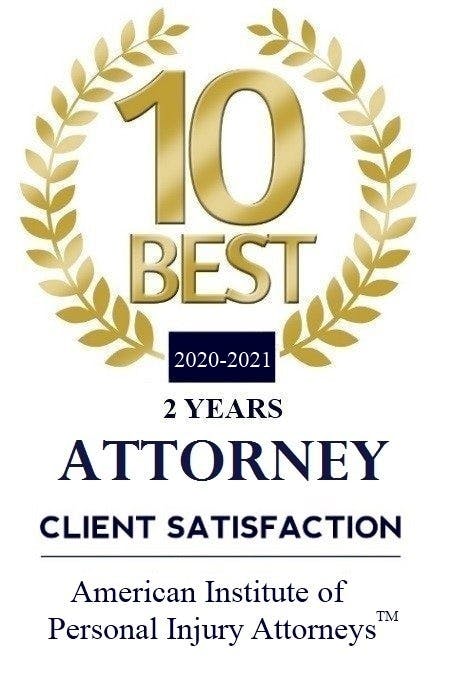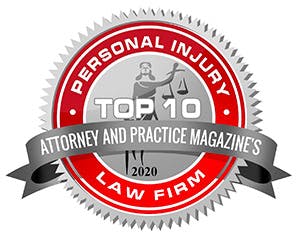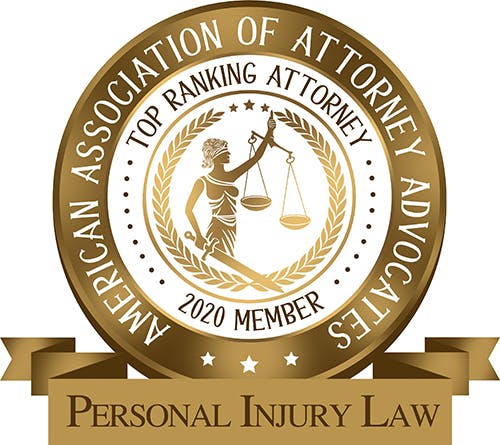
Justice After Tragedy: Flight 587 Crash and the Fight for Aviation Reform
One of the most devastating aviation disasters in U.S. history, American Airlines Flight 587, crashed in the Belle Harbor neighborhood of Queens, New York, on November 12, 2001. Shortly after takeoff from JFK International Airport, the Airbus A300-600 lost control due to structural failure caused by excessive rudder input in response to wake turbulence. The crash claimed 260 lives on board and five more on the ground, devastating New York’s Dominican-American community, as many passengers were en route to the Dominican Republic.
Michael S. Lamonsoff represented families of the victims, standing up to powerful airlines and insurance companies to secure justice. His relentless advocacy helped expose critical aviation safety concerns, reinforcing the need for pilot training reforms regarding rudder use and aircraft stability.
Insurance Coverage Laws for Plane Crashes in New York
Aviation insurance policies are complex and differ depending on whether the aircraft is privately owned, commercially operated, or under governmental jurisdiction.
- Airline Passenger Liability Insurance: Airlines must carry at least $300 million in liability insurance, covering passengers for injuries and death.
- Private Aircraft Insurance: Coverage varies but typically includes hull insurance (for aircraft damage) and liability insurance (for passenger and third-party injuries).
- Workers' Compensation: Airline crew members or airport staff injured in an aviation accident may be eligible for workers’ compensation benefits under New York law.
- Manufacturer Liability Insurance: If a mechanical failure is involved, product liability insurance may cover victims.
- The Montreal Convention: For international flights, the Montreal Convention governs compensation for injured passengers, with an automatic liability cap of 100,000 Special Drawing Rights (SDRs) (around $135,000 USD) unless negligence is proven.
Schedule a Free Consultation
Contact UsCommon Causes of Plane Crashes
Aviation accidents may result from multiple contributing factors. The most common causes include:
- Pilot Error: The leading cause of aviation accidents (over 50%). This includes miscalculations, poor decision-making, or fatigue.
- Mechanical Failure: Defective aircraft parts or maintenance failures can lead to catastrophic failures mid-flight.
- Weather Conditions: Fog, thunderstorms, and strong winds can compromise pilot control and lead to crashes.
- Air Traffic Control Mistakes: Miscommunication or incorrect guidance from air traffic controllers can result in collisions or crashes.
- Fuel Starvation: Insufficient fuel due to pilot error or fuel system malfunctions.
- Bird Strikes: Collisions with birds, particularly during takeoff and landing, can cause engine failure.
- Sabotage or Terrorism: Though rare, some crashes involve criminal activity, such as bombings or hijackings.
Who Can Be Held Liable for a Plane Crash?
Aviation litigation is complex, as multiple parties may share liability:
- The Airline or Aircraft Operator: If improper maintenance, poor pilot training, or safety violations caused the crash.
- The Pilot: In cases of reckless flying, intoxication, or failure to follow proper procedures.
- Aircraft Manufacturers: If a design or manufacturing defect caused or contributed to the crash.
- Maintenance Crews: If improper repairs or overlooked defects led to an accident.
- Air Traffic Control Authorities: If controller negligence played a role in the crash.
- Government Entities: If the accident involved military or government-controlled aircraft.
Types of Compensation Available for Plane Crash Victims
Victims and families of deceased passengers may be entitled to significant compensation, including:
Economic Damages:
- Medical expenses (emergency care, surgeries, rehabilitation)
- Lost wages and future earning potential
- Funeral and burial expenses
- Property damage
Non-Economic Damages:
- Pain and suffering
- Emotional distress
- Loss of companionship (for wrongful death claims)
Punitive Damages:
- If negligence was extreme (e.g., a manufacturer knew about a defect but failed to fix it), courts may award additional punitive damages to deter future misconduct.
Steps to Take If You Were Injured or a Loved One Was Killed in a Plane Crash
If you were injured or a loved one was killed in a plane crash, these are the immediate steps you should take:
- Seek Immediate Medical Attention: Prioritize your health and keep records of all treatments.
- Preserve Evidence: Keep medical records, flight details, and any correspondence with airlines or insurers.
- Report the Accident: File a report with the NTSB or Federal Aviation Administration (FAA).
- Consult an Experienced Plane Crash Lawyer: Aviation lawsuits are highly technical; an experienced lawyer can guide you through the process and fight for maximum compensation.
- Avoid Speaking with Insurers Without Legal Counsel: Insurance companies may try to minimize payouts—let your New York airplane accident lawyer handle negotiations.
Complexities of Airplane Accident Litigation
Aviation lawsuits are among the most intricate personal injury cases due to several reason, including:
- Federal and International Laws: Cases may involve the FAA, NTSB, and international conventions.
- Multiple Liable Parties: Airlines, manufacturers, government entities, and air traffic controllers may all be responsible.
- High-Value Claims: Airlines and manufacturers fight aggressively to reduce or deny compensation.
- Expert Testimonies: Engineers, aviation experts, and accident reconstruction specialists are often required to prove liability.
- Venue and Jurisdiction Issues: Some cases may be tried in federal courts or even in international courts if the crash occurred outside the US.
Why You Need a Skilled New York Plane Crash Lawyer
Aviation accident litigation is not like a typical car accident case—it requires deep legal knowledge, access to top aviation experts, and aggressive courtroom advocacy. If you or a loved one has suffered due to a plane crash in New York, an experienced NY aviation accident attorney can:
- Investigate the cause of the crash
- Identify all liable parties
- Negotiate with airlines and insurers for full compensation
- Take the case to trial if necessary
With the right legal representation, you can hold negligent parties accountable and secure the justice you deserve. Contact our New York airplane accident lawyer today for a free consultation and let us fight for your rights.
Insurance Companies Fear “The Bull”
The airline industry and its insurers have endless resources to minimize payouts, but Michael S. Lamonsoff knows how to turn the tables. He prepares every case for trial, forcing insurance companies to pay victims what they deserve—or face a jury. His reputation as a fearless litigator means insurers are generally eager to settle for substantial sums rather than risk losing in court.
Your Fight Starts Here
If you or a loved one has been injured or lost their life in a plane crash, you need an advocate who will go the distance. Michael S. Lamonsoff doesn’t just take on case numbers—he takes them personally. Call The Law Offices of Michael S. Lamonsoff, PLLC today for a free, no-obligation consultation and let “The Bull” fight for your financial recovery.
Frequently Asked Questions on Plane Crash Claims
Can I file a claim if the crash involved an experimental aircraft or private charter?
Yes, claims can still be pursued, but liability may be more complex due to unique regulations and waivers signed by passengers. Investigations often focus on maintenance records, pilot training, and manufacturer defects.
What if my loved one was on a military aircraft that crashed—can I still seek compensation?
Military aircraft crashes often involve sovereign immunity, but exceptions exist under the Federal Tort Claims Act (FTCA) or if third-party contractors were responsible for negligence.
Can I hold an airline accountable if my injury occurred due to a hard landing rather than a full crash?
Yes, if the landing was excessively rough and caused injuries, the airline may be liable under negligence or pilot error claims. Black box data and pilot communication records can be crucial in proving liability.
What if a drone collision contributed to the plane crash?
The drone operator, manufacturer, or even regulatory agencies may share liability. Drone-related crashes are increasing, and legal claims may involve new aviation safety laws.
Can I sue if turbulence caused serious injuries but the plane didn’t crash?
Yes, passengers injured due to severe turbulence may file claims against airlines if the pilot failed to take precautions or warn passengers. Claims often involve pilot decisions, airline policies, and weather monitoring failures.
Is compensation available if the crash occurred due to cyber hacking or GPS interference?
Yes, liability may fall on hackers, negligent cybersecurity providers, or regulatory bodies that failed to implement sufficient protections. However, proving cyber liability in aviation cases is highly complex and may involve international laws.
What happens if the crash occurred in international waters?
The Montreal Convention and maritime laws may determine jurisdiction. Passengers' nationalities, airline registration, and crash location all impact where and how claims are filed.
If my loved one was a non-ticketed passenger (such as a crew member or employee on a repositioning flight), can I still file a claim?
Yes, but the claim might fall under workers’ compensation laws or employer liability instead of traditional passenger claims. The airline's employment policies and insurance coverage play a key role.
Can I sue if a defective seatbelt, overhead bin, or cabin equipment contributed to injuries in a crash?
Yes, product liability claims against the aircraft manufacturer, parts suppliers, or maintenance providers may be viable if faulty equipment worsened injuries or caused fatalities.
If a plane crash involved an emergency landing due to fuel mismanagement, who is responsible?
Liability may fall on the airline, pilot, maintenance crew, or fuel supplier. Investigators examine whether fuel calculations, storage, or delivery errors contributed to the crash.
What if my loved one was on a hijacked plane—can I sue the airline or government?
Potential claims may involve airline security negligence, failure to follow anti-terrorism protocols, or inadequate government intelligence sharing. The complexity of these claims often involves federal security policies and international aviation agreements.
Can I file a claim if my loved one was presumed dead, but their body was never recovered?
Yes, legal presumptions of death can be established, and families may seek compensation based on forensic evidence, flight data, and survivor testimonies. Courts may require specific proof under wrongful death statutes.
Yes, claims can still be pursued, but liability may be more complex due to unique regulations and waivers signed by passengers. Investigations often focus on maintenance records, pilot training, and manufacturer defects.
Military aircraft crashes often involve sovereign immunity, but exceptions exist under the Federal Tort Claims Act (FTCA) or if third-party contractors were responsible for negligence.
Yes, if the landing was excessively rough and caused injuries, the airline may be liable under negligence or pilot error claims. Black box data and pilot communication records can be crucial in proving liability.
The drone operator, manufacturer, or even regulatory agencies may share liability. Drone-related crashes are increasing, and legal claims may involve new aviation safety laws.
Yes, passengers injured due to severe turbulence may file claims against airlines if the pilot failed to take precautions or warn passengers. Claims often involve pilot decisions, airline policies, and weather monitoring failures.
Yes, liability may fall on hackers, negligent cybersecurity providers, or regulatory bodies that failed to implement sufficient protections. However, proving cyber liability in aviation cases is highly complex and may involve international laws.
The Montreal Convention and maritime laws may determine jurisdiction. Passengers' nationalities, airline registration, and crash location all impact where and how claims are filed.
Yes, but the claim might fall under workers’ compensation laws or employer liability instead of traditional passenger claims. The airline's employment policies and insurance coverage play a key role.
Yes, product liability claims against the aircraft manufacturer, parts suppliers, or maintenance providers may be viable if faulty equipment worsened injuries or caused fatalities.
Liability may fall on the airline, pilot, maintenance crew, or fuel supplier. Investigators examine whether fuel calculations, storage, or delivery errors contributed to the crash.
Potential claims may involve airline security negligence, failure to follow anti-terrorism protocols, or inadequate government intelligence sharing. The complexity of these claims often involves federal security policies and international aviation agreements.
Yes, legal presumptions of death can be established, and families may seek compensation based on forensic evidence, flight data, and survivor testimonies. Courts may require specific proof under wrongful death statutes.





